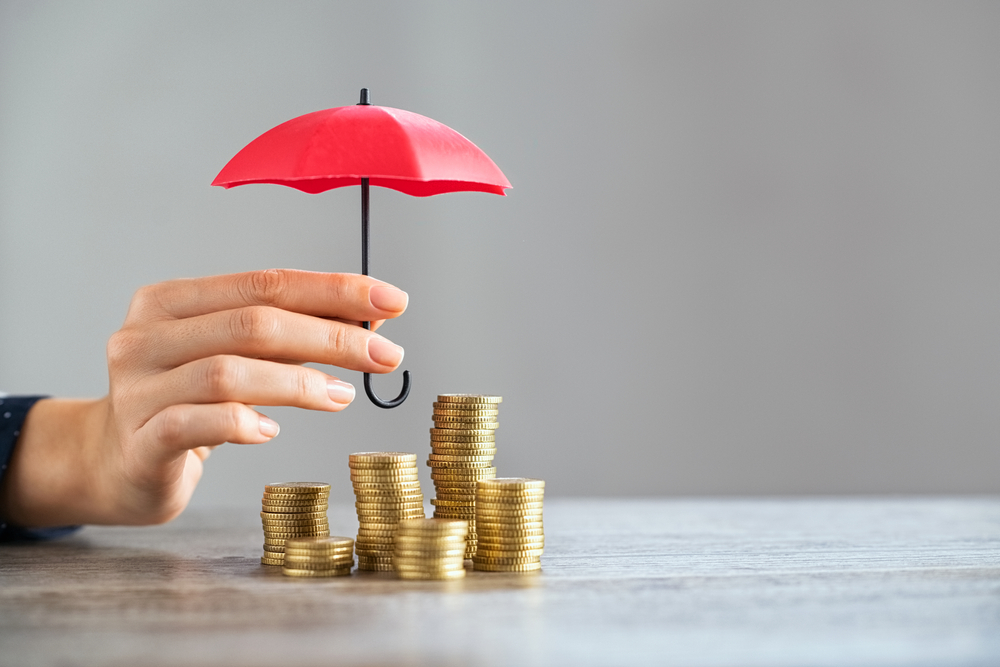8 Safe Investments for People Who Hate Risking Their Money

The soaring inflation and rising interest rates are a genuine reason to retract from somewhat risky investments. It’s now the ultimate time for everyone to demonstrate financial discipline as we face a bumpy ride in the months ahead. Building a less risky portfolio will prove the only way to maneuver this market volatility.
The result, of course, in lowering the investment risk is earning lower returns in the long term. This should not be a concern if you just want to maintain the capital value and perhaps make a steady income.
However, if you want to grow exponentially, align your investment strategies with long-term goals. Even high-risk investments have low-risk segments whose returns increase with time. But where do you start? Worry no more. Here are 8 safe investments you can make in the current volatile economy.
Best Safe Investments in 2022 and Beyond
- High-Yield Savings Accounts
Savings accounts are not necessarily considered an investment but offer modest returns on investment. Simply search a high-yielding option with the best rate online.
Keeping your money in a savings account means you’ll never lose it. Most of these accounts are insured, so you rest assured that you can receive up to $250,000 even if the bank fails.
- Series I savings bonds
This type of bond adjusts for inflation, ensuring safe investments throughout. In other words, the bond interest rate adjusts upwards when inflation rises and vice versa. The U.S. Department of the Treasury operates the TreasuryDirect.gov site, which sells the Series I bond.
Purchasing an I bond comes with an inflation premium revised twice a year to align with the economy. Besides, the bond’s semi-annual adjustment means that your yields are considerate of the rising inflation. For that reason, you’re likely to receive a sizeable ROI. If inflation keeps rising, the bond will adjust higher to protect you from the ravages of staggering prices.
- Certificates Of Deposit
FDIC-backed accounts have loss-proof for bank CDs unless you withdraw prematurely. With plenty of financial institutions offering CDs, you’ll want to compare and choose one with the best offer. It may make sense to start with short-term CDs and reinvest as interest rates keep rising as you don’t want to remain in the short-term CDs market for long.
Alternatively, you can invest in a no-penalty CD that doesn’t charge you fines for premature withdrawals. This allows you to withdraw the money and invest it in a higher-paying CD cost-free.
Investing in CDs and leaving them intact for a set period attracts a fixed interest rate. Although some savings accounts may pay higher interest than some CDs, you don’t require many deposits in the latter like in the former.
- Money Market Funds
The money market fund includes short-term bonds, pools of CDs, and other safe investments. All these are grouped to mitigate risk and sold by mutual fund and brokerage companies. Unlike CDs, the money market fund allows you to withdraw funds without penalties.
- Treasury Bills and Bonds
The treasury issues bonds, bills, notes, and tips. The bonds mature in up to 30 years, notes take around 10 years, and about a year for bills. On the contrary, the treasury TIPS come as securities whose value changes with inflation. You can invest in all these treasury offerings directly or through mutual funds.
- Corporate Bonds
Companies, too, have high-risk and low-risk bonds. Normally, low-risk varieties are offered by large profitable companies. However, there are also junk bonds that are very low quality and riskier because they come with the default risk and the interest rate risk as well.
The interest rate risk refers to the fluctuation in a bond’s market value as interest rates change. Similarly, the default risk is the failure of a company to make the interest and principal payment leaving you with no investment.
Avoid risks and only select bonds maturing in a few years to come, as long-term investments may be sensitive to interest rate changes. Also, counter the default risk by selecting high-yield bonds from profitable companies.
- Dividend-Paying Stocks
Although stocks a riskier than government bonds, savings accounts, or cash, they are safer than most high-fliers like futures or options. Investing in dividend stocks is safer than in high-yield stocks since you receive cash dividends which limit volatility. In other words, the dividend stocks may fluctuate with the market but will not crash even when the market is depressed.
Investing in dividend-paying stocks is generally less risky than in a growth stock. This way, you depend on the principal value of that stock as you receive regular income from it.
- Fixed Annuities
An annuity is a contract you sign with an insurance company in which you commit to make payments and receive regular reimbursements after a set period. Most annuity structures make payments after a fixed period, such as 30 years or until the contributor’s demise.
Setting a fixed annuity means you’ll be paying a set amount regularly. However, you can contribute a lump sum and receive the payout anytime.
Signing up for a fixed annuity offers you a guaranteed income and financial security, especially during retirement. Besides, annuities come with other benefits, such as minimum guaranteed payouts and death benefits, depending on the contract.
Invest Safely
Investors look for high returns, but it should not be the only consideration. You must consider the risk-adjusted return, especially as inflation and interest rates soar. There are plenty of investment opportunities, but we have highlighted a few that promise the best value at a low cost, even if it means relatively low returns.
Disclosure: This post may contain affiliate links, meaning we get a commission if you decide to make a purchase through my links, at no cost to you. For more information, see our disclosure here.
Take Control Of Your Finances
Get advice on making, saving and managing your money sent directly to your inbox daily.
